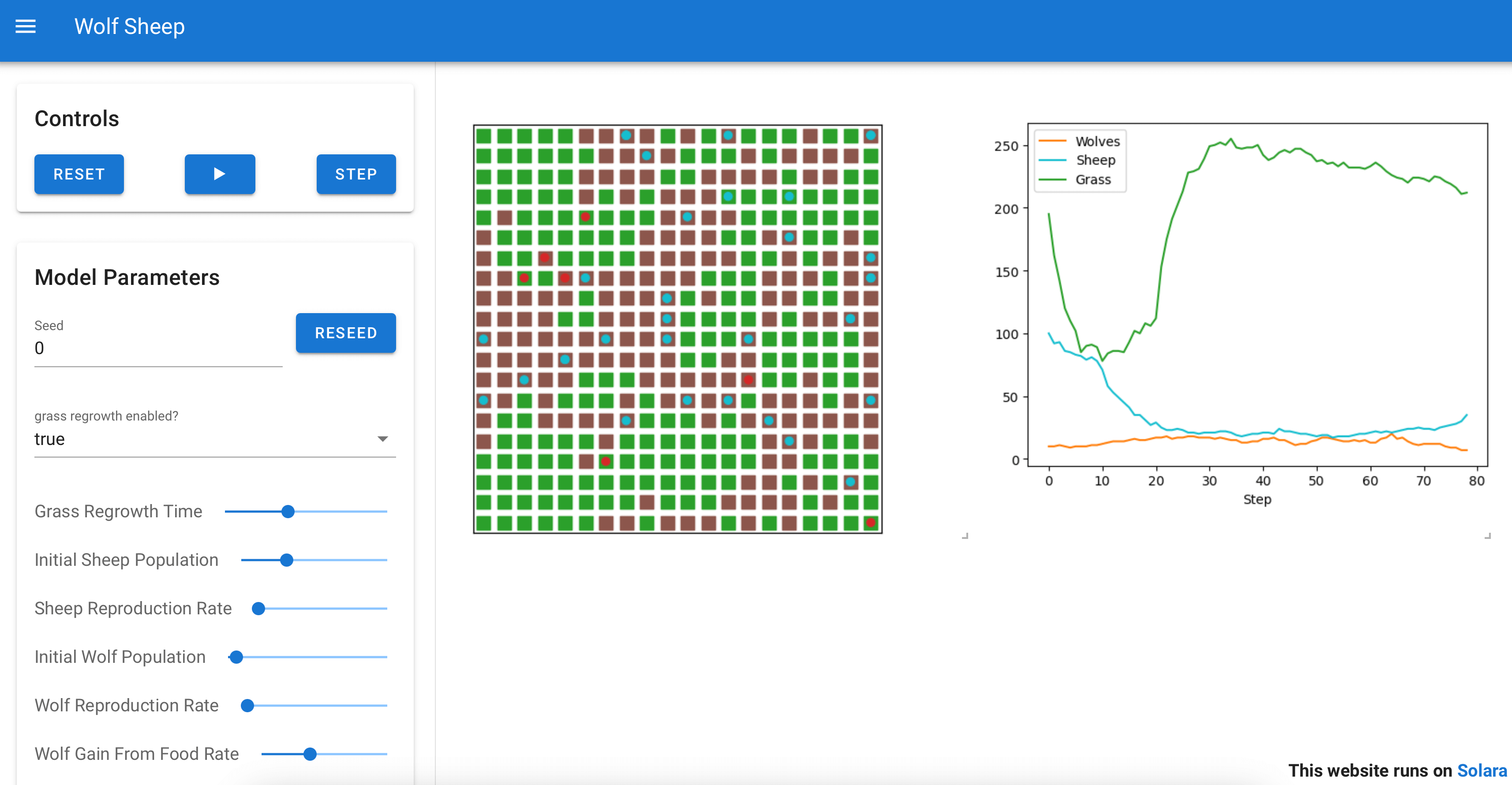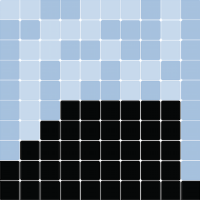Mesa: Agent-based modeling in Python#


Mesa is an Apache2 licensed agent-based modeling (or ABM) framework in Python.
Mesa allows users to quickly create agent-based models using built-in core components (such as spatial grids and agent schedulers) or customized implementations; visualize them using a browser-based interface; and analyze their results using Python’s data analysis tools. Mesa’s goal is to make simulations accessible to everyone, so humanity can more effectively understand and solve complex problems.
 A visualisation of the Wolf Sheep model build with Mesa.
A visualisation of the Wolf Sheep model build with Mesa.
Features#
Built-in core modeling components
Flexible agent and model management through AgentSet
Browser-based Solara visualization
Built-in tools for data collection and analysis
Example model library
Using Mesa#
Installation Options#
To install our latest stable release, run:
pip install -U mesa
To also install our recommended dependencies:
pip install -U mesa[rec]
The [rec] option installs additional recommended dependencies needed for visualization, plotting, and network modeling capabilities.
On a Mac, this command might cause an error stating zsh: no matches found: mesa[all].
In that case, change the command to pip install -U "mesa[rec]".
Furthermore, if you are using nix, Mesa comes with a flake with devShells and a runnable app:
nix run github:project-mesa/mesa # for default Python shell
For development shell, clone the repository and run the following command from repository root:
nix develop .#uv2nix # pure shell
Resources#
For help getting started with Mesa, check out these resources:
Getting started - Learn about Mesa’s core concepts and components
Migration Guide - Upgrade to Mesa 3.0
Mesa Examples - Browse user-contributed models and implementations
Mesa Extensions - Overview of mesa’s Extensions
GitHub Discussions - Ask questions and discuss Mesa
Matrix Chat Room - Real-time chat with the Mesa community
Development and Support#
Mesa is an open source project and welcomes contributions:
GitHub Repository - Access the source code
Issue Tracker - Report bugs or suggest features
Contributors Guide - Learn how to contribute
GSoC at Mesa — Candidates Guide - For candidates interested in participating in the Google Summer of Code at Mesa
Citing Mesa#
To cite Mesa in your publication, you can refer to our peer-reviewed article in the Journal of Open Source Software (JOSS):
ter Hoeven, E., Kwakkel, J., Hess, V., Pike, T., Wang, B., rht, & Kazil, J. (2025). Mesa 3: Agent-based modeling with Python in 2025. Journal of Open Source Software, 10(107), 7668. https://doi.org/10.21105/joss.07668
Our CITATION.cff can be used to generate APA, BibTeX and other citation formats.
The original Mesa conference paper from 2015 is available here.
